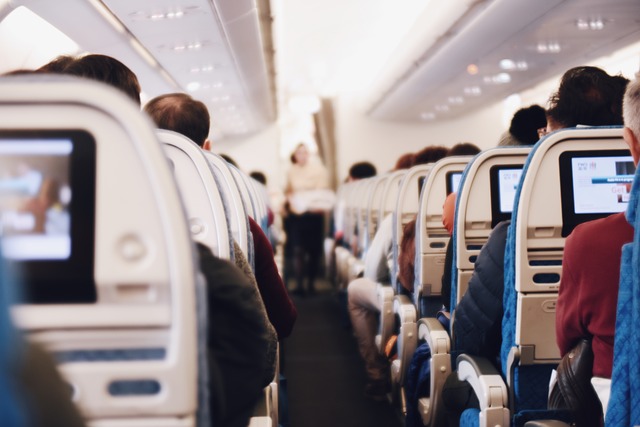
-
The Civil Aeronautics Board approved higher fuel surcharge that airlines may charge passengers from July 1 to 31
-
A cargo fuel surcharge has also been introduced for the first time
-
Under fuel surcharge Level 11, rates range from P355 to P1,038 per passenger on a one-way domestic flight and from P1,172.07 to P8,714.84 per passenger on a one-way international flight
-
For cargo, Level 11 rates range from P1.82 to P5.34 per kilogram for a one-way domestic flight and from P6.03 to P44.80 per kg on a one-way international flight
The Civil Aeronautics Board (CAB) has just released its revised policy on fuel surcharges that now includes a matrix for cargo fuel surcharge. For the initial implementation of the revised policy, the fuel surcharge that airlines can impose from July 1 to 31 will be at Level 11 under Policy Resolution No. 25.
In an advisory dated June 22, CAB executive director Carmelo Arcilla said that from May 10 to June 9, jet fuel prices averaged P53.49 per liter, which corresponds to Level 11 of the passenger and cargo fuel surcharge matrix.
Level 11 rates range from P355 to P1,038 per passenger on a one-way domestic flight and from P1,172.07 to P8,714.84 per passenger on a one-way international flight pursuant to Resolution No. 25. This compares with June’s Level 7 rates of from P201 to P769 one-way per domestic flight passenger and from P1,035 to P9,892 one-way per international flight passenger.
For cargo, Level 11 rates range from P1.82 to P5.34 per kilogram for a one-way domestic flight and from P6.03 to P44.80 per kg on a one-way international flight.
This is the highest surcharge rate that airlines may charge so far since CAB announced in July 2021 the reimposition of a fuel surcharge following increases in jet fuel price.
The surcharge cannot be imposed on a passenger’s checked-in baggage, according to Resolution No. 25.
Airlines wishing to impose or collect fuel surcharge from July 1 to 31 must file their application with CAB on or before the effectivity period, with fuel surcharge rates not exceeding the stated level.
For a fuel surcharge to be collected in the equivalent foreign currency, the applicable conversion rate for the period is P52.45 to US$1.
Resolution No. 25, adopted on May 23 and released recently, revises Resolution No. 46 (passenger fuel surcharge for domestic and international flights adopted in June 2021), which was reviewed and evaluated by CAB this year in light of the steady rise in jet fuel prices on the global market, and the volatile foreign exchange rate.
CAB said the review showed fuel surcharges was made only applicable to passengers, which is one component in a combination service (passenger and cargo operations).
Resolution No. 25 states a cargo fuel surcharge matrix may be provided given that the volatility of jet fuel prices also affects cargo operations as a component of a combination service. In this case, cargo is carried in the belly-hold capacity of a passenger aircraft.
Under the new policy, the applicable fuel surcharge will be determined based on a one-month average of jet fuel Mean of Platts Singapore prices in its peso per liter equivalent, and will be fixed for the immediately succeeding month. This will be the ceiling rate for a fuel surcharge.
The applicable fuel surcharge will be evaluated every month and announced 15 days before it takes effect.
Previously, the applicable fuel surcharge was determined based on a two-month average and implemented for two months.
Moreover, there are now 20 levels under the fuel surcharge matrix from just seven levels previously.
Airlines should still seek government approvals before imposing, collecting or implementing any fuel surcharge or change thereof, and should not exceed the applicable prevailing rates as determined by CAB. Airlines may also opt not to impose any fuel surcharge.
Resolution No. 25 notes that airline fuel surcharge is an optional fee that carriers may impose and collect to recover fuel costs and stem losses caused by a spike in fuel prices.
“Fuel surcharge is not a part of the basic airfare and may be reduced or removed depending on the price of jet fuel in the market, in accordance with prevailing international practice,” the resolution said.
As with previous resolutions, if the one-month price average of jet fuel per liter falls below P21, no fuel surcharge will be collected.
The passenger fuel surcharge level in effect on the day of ticketing should be applied, and should be the same for all passengers, excepts infants without seats. The applicable surcharge should be collected per passenger and per segment.
For cargoes, the fuel surcharge should be applicable only for cargo carried in the cargo hold of an aircraft used for combination services. Such cargo must be covered by an airway bill.
Cargo fuel surcharge should be collected based on the actual weight (as opposed to chargeable weight) carried per segment.
For international flights originating in the Philippines, the fuel surcharge may be charged in any equivalent foreign currency.
When an unused portion of the ticker/airway bill is refunded, the fuel surcharge collected will be refunded in full. When a ticker is rebooked and a fuel surcharge was previously collected, the fuel surcharge will be adjusted to the prevailing rate when it was rebooked.
Unauthorized imposition or collection of fuel surcharge or non-conformity with the applicable rates will be penalized, Resolution No. 25 states.
Any violation of Resolution No. 25’s provisions will likewise be a ground for the subsequent denial of application for authority to implement or impose a fuel surcharge, or for revocation of any approval previously issued. – Roumina Pablo




